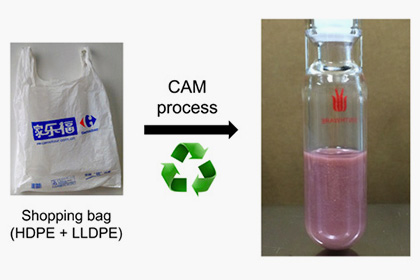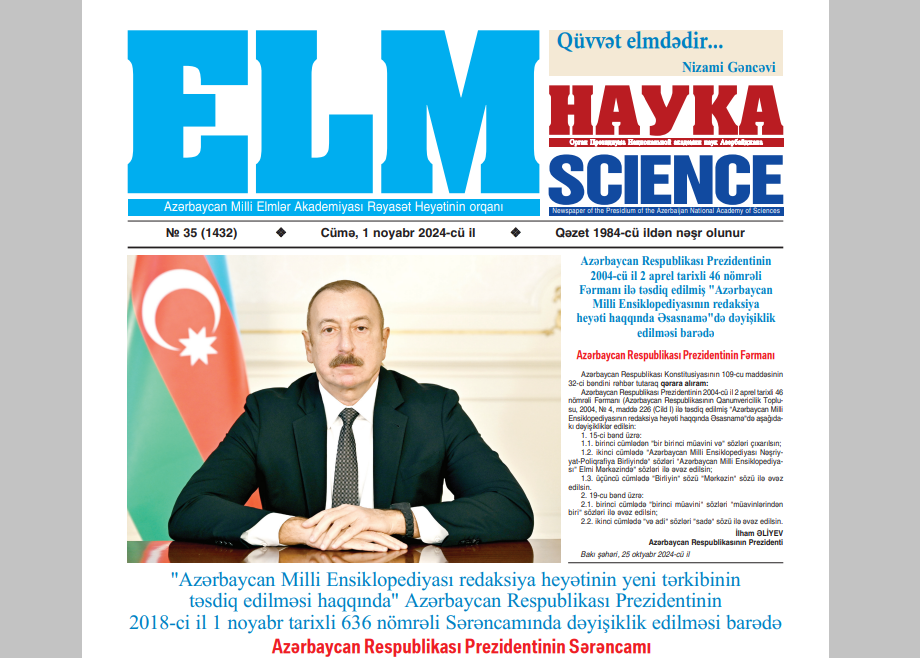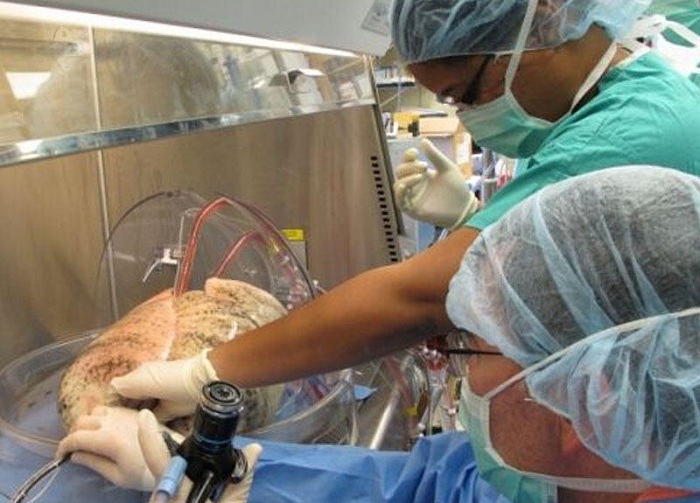
- A-
- A
- A+
Scientists Turn Plastic Bottles and Bags into Liquid Fuel
In the future, perhaps we'll be mining our landfills and fishing through our oceans for the raw materials to make fuel. Using a two-catalyst process, a joint U.S.-China team of researchers has figured out how to take discarded plastic products, from grocery bags to plastic bottles, and turn them into useful products like fuel.
The process, described in the journal Science Advances, requires less energy and creates a purer end product than other methods -- and could offer an efficient new method for turning our plastic trash into treasure.
Plastics, which are essentially extremely long chains of mainly carbon and hydrogen atoms, are made from fossil fuels. The problem is, unless they're specially designed bio-plastics, they don't typically degrade quickly into biologically compatible products.
"If you leave plastic in the ocean or the environment or you bury it underground, it's going to stay there for hundreds or thousands of years," said Zhibin Guan, a synthetic polymer chemist at UC Irvine and one of the study's senior authors.
Take polyethylene, a really simple polymer made of just hydrogens and carbons, which happens to be the largest-volume plastic in the world (annual production, according to the study authors, exceeds 100 million metric tons). It's ubiquitous: Three types of polyethylene, together with polypropylene, make up more than 60% of the total plastic in municipal solid waste, the study authors wrote.
So scientists have been trying to find ways to efficiently convert these plastics back into fuels or other useful molecules -- but that's not as easy as it sounds.
Here's the problem: Polyethylene, the authors wrote, "is remarkably inert and difficult to degrade without special treatment."
That's in large part because the bonds between carbons are very stable and difficult to break down properly. For example, if you try to heat them at more than 400 degrees Celsius (which some methods do), they collapse into all kinds of combinations, resulting in a messy mix of gas, oil, wax and char that's not especially useful.
Similar News
Links




 Elm TV
Elm TV
 Photo
Photo
 Video
Video





